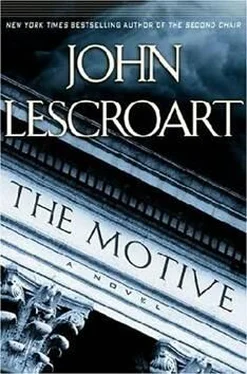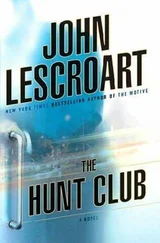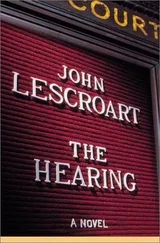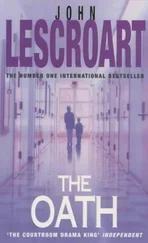"And it was?" "Gasoline."
"Inspector, you used the word 'exactly.' Surely you don't mean you can tell what type of gasoline it was?"
Hardy and Catherine were of course both intimately familiar with every nuance of this testimony. Unable to bear his own silence any longer, he leaned over and whispered to her. "Surely he doesn't mean that?" A wisp of a smile played at Catherine's mouth.
"That's exactly what I mean." Becker gushed on, explaining the mass-spectrometer reading, the chemical analysis (more charts) of Valero gasoline, the point-by-point comparison. Finally, Rosen, having established murder and arson-although no absolute causal relationship between the two-changed the topic. "Now, Inspector, if we could go back to the night of the fire for a while. After you told the firefighters to preserve the crime scene as best you could, what did you do then?"
"I went outside to direct the arson team." He went on to describe the members of this team-another arson inspector, the police personnel-and their various functions, concluding with getting the names and contacts of possible witnesses from people gathered at the scene. "And why do you want to do that?"
Becker seemed to have some trouble understanding the question. Suddenly his eyes shifted to Hardy, but he braved a reply. "Well, lots of people tend to come to a fire, and you never know which of them might have seen something that could prove important. Sometimes a spectator might not recognize the importance of something they've seen. We just like to have a record of everybody who was there so inspectors can go back and talk to them later."
The reason for Becker's sudden edginess soon revealed itself. Rosen had obviously rehearsed this part of the testimony to get to this: "Inspector, isn't it true that, in your experience, when arson is involved, the arsonist, the person who set the fire, often comes back to admire his or her handiwork?"
Hardy shot up. "Objection, Your Honor. No foundation. The witness is not a psychologist." This was kind of a lame objection, since the question was more about what arson inspectors observed than what was in the mind of arson suspects, but it sounded good, and the judge went for it.
"Sustained."
Rosen tried again. "Inspector Becker, among arson inspectors is it common knowledge that a person who sets a fire…?"
Hardy wouldn't let him finish. "Objection! Hearsay and speculation."
"Sustained. Mr. Rosen, ask a specific question or drop this line."
"All right, Your Honor." Rosen stood still, all but mouthing his words first to make sure he got them right. "Inspector, in your own experience, have you personally ever identified and/or arrested an arsonist who had returned to a fire he or she had created?"
Hardy was on his feet. "Your Honor, I'm sorry, but I must object again."
But Rosen, this time, had made it narrow enough for the judge to accept. "Objection overruled. Go ahead, Mr. Rosen."
"Thank you, Your Honor."
Hardy caught a bit of a smirk in the prosecutor's face and, suddenly realizing his own blunder, he tightened down on the muscles in his jaw. By objecting time and again to Rosen's questions, he'd fallen for the prosecutor's bait, thus calling the jury's attention to an item they might otherwise have overlooked as unimportant. Now no one in the courtroom thought it was unimportant, and Hardy had no one to blame for that but himself.
Rosen asked the reporter to read back the question, which she did as Hardy lowered himself to his chair.
The answer, of course, was yes. Becker himself had personally had cases where arsonists had returned to or remained at the fire scene at least a dozen times.
"So now you were outside, across the street from the fire? Can you tell the jury what happened next?"
Hardy had seen this coming. He might have objected on relevance with some chance of being sustained this time, but he had a use in mind for the information.
Becker answered. "Yes, a woman saw that I was in a command position and she approached me and told me that she was related to the man who owned the burning house."
"Do you recognize that woman in this courtroom?"
"I do."
"Would you point her out for the jury, please?" "Yes." He held out his hand. "Right there, at the table."
"Let the record show that Inspector Becker has identified the defendant, Catherine Hanover." Rosen gave his little bow. "Thank you, sir." Turning to Hardy. "Your witness."
"Inspector Becker," Hardy said. "In your testimony, you used the word 'sifted' when you talked about recovering evidence from the scene of the fire. What did you mean by that?"
In spite of the time he'd already been on the stand, Becker remained fresh and enthusiastic. "Well, it's not a very high-tech procedure, but what we do is kind of sweep up and bag everything around a body and then try to identify everything that was at the scene, down to pretty small items."
"And you used this technique after the Hanover fire?"
"Yes, we did."
"Were you looking for anything specific?"
"To some extent, yes. I hoped to find the bullet casings, for example."
Hardy feigned surprise. "You mean you could locate and sift out something that small?"
"Sure, and even smaller than that. By the time we're through, we're pretty much down to ash and nothing else."
"And did you in fact find the bullet casings?"
"Yes."
"Two of them?"
"Yes."
"Were there any fingerprints or any other identifying marks on either of the casings?" "Yes. Mr. Hanover's."
"Mr. Hanover's?" Hardy said. "Not Catherine Hanover's?"
"No."
"What about the gun itself? Were there fingerprints on the gun?"
"Yes. Mr. Hanover's and some others."
"Some others? How many others?"
"It's hard to say. There was nothing to compare them with. It might have been one person, or maybe two or more."
"But did you try to compare them to Catherine Hanover's fingerprints?" "Yes. Of course." "And did you get a match?"
"No. And the other stuff in the house was all burned up."
"In other words, Inspector Becker, there is no physical evidence to indicate that Catherine Hanover had ever touched either the gun that has been identified as the murder weapon or the bullets that were used on the victims? Is that correct?"
"Yes."
"No evidence she was ever even near the gun at any time? Ever?" "None."
"In fact, Inspector, isn't it true that in your careful sifting of all the evidence found in the house after the fire, you did not discover any physical evidence that linked Catherine Hanover either to these murders or, for that matter, to the fire itself?"
Becker answered with a professional calm. "Yes, that's true."
Hardy took the cue and half turned to face the jury. "Yes," he repeated, driving the answer home. But he came right back to Becker. "I'd like to ask you a few questions now about the first time you saw Catherine Hanover on the night of the fire. Did you question her?"
"Not really. She came up to me and said she was related to the home's owner. That was about it. There was really nothing to question her about at that time."
"Nothing to question her about. Did anyone else join the two of you at about this time?"
"Yes. Sergeant Inspector Cuneo arrived from the homicide department, which we'd called as soon as we discovered the bodies."
"And did Inspector Cuneo question Mrs. Hanover?"
"A little bit. Yes."
"Just a little bit?"
"A few minutes. As I said, there was no real reason to question her."
"Yes, you did say that. And yet Inspector Cuneo chose to question her?"
"Your Honor!" Rosen said. "Objection. Where's this going? Sergeant Cuneo was a homicide inspector called to a crime scene. He can talk to anybody he wants for any reason."
"I assume," Braun said stiffly, "that your objection, then, is for relevance. In which case, I'll overrule it."
Читать дальше












